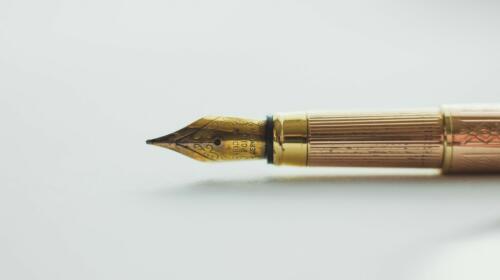 It was an exciting transition, but it also felt like a huge life change despite the similarities in my old life as news reporter and my new job as a public relations specialist.
It was an exciting transition, but it also felt like a huge life change despite the similarities in my old life as news reporter and my new job as a public relations specialist.
The following months were filled with a lot of questions and mistakes, but also new skills and opportunities to improve. Though I’m more adjusted to my PR job now, if I could go back in time to ease the transition, I’d tell myself these three things:
Get a planner, and use it regularly
As a reporter, I never knew what my day was going to look like. My job was so reactive that I couldn’t plan for the day – much less think about how the week, month or quarter would play out. But in PR, your job is more structured and future-oriented. The key is to stay ahead and plan accordingly.
So, whether you use your company’s online scheduling system (like Microsoft Outlook or Google Calendar) or invest in an old-fashioned paper planner, make sure you use something. You will want reminders for recurring activities – like client calls, editorial calendars and quarterly reports – and be ready for last-minute requests. This will help block off the appropriate amount of time for the work each task entails.
Redefine what customer service looks like
In journalism, readers are your number one priority. You ask questions, write stories and pour over every aspect of the published word with them in mind – including data points, spelling of names and punctuation marks. This attention to detail doesn’t change when you move to PR. The only difference is the recipient of your work.
 With this in mind, learn to think about what your client wants out of your work and modify accordingly. How would they like the public to perceive them? What kind of reporting works for their system? Get used to thinking about their concerns and needs. And just like with journalism, you’ll also want to sweat the details: Re-read every written correspondence. Don’t forget to include that attachment you said you would include, and ask your peers to review your work – even if it’s just an email.
With this in mind, learn to think about what your client wants out of your work and modify accordingly. How would they like the public to perceive them? What kind of reporting works for their system? Get used to thinking about their concerns and needs. And just like with journalism, you’ll also want to sweat the details: Re-read every written correspondence. Don’t forget to include that attachment you said you would include, and ask your peers to review your work – even if it’s just an email.
Don’t lose your editorial sense
Realize that your job is going to look different, but the core of “what” and “how” you do work remains the same. You’ll still be held to a high standard of ethics. You’ll need to write often and edit carefully. And, of course, the concept of deadlines will never go away.
Clients want and expect those hallmarks of high quality work, so don’t leave them at the door when you step into your first PR job.
If you’re transitioning to the world of PR or considering making the leap, realize that your day-to-day work life is going to look different. You’ll have to rethink your concept of time and customer service, but you won’t have to change who you are. At first, you’ll make mistakes and ask a lot of questions, but in time you’ll also improve and be better for it.
Just make sure to stay curious, write often and remember: You’re going to be just fine.
Looking to transition into an agency role? Check out our current opportunities.



